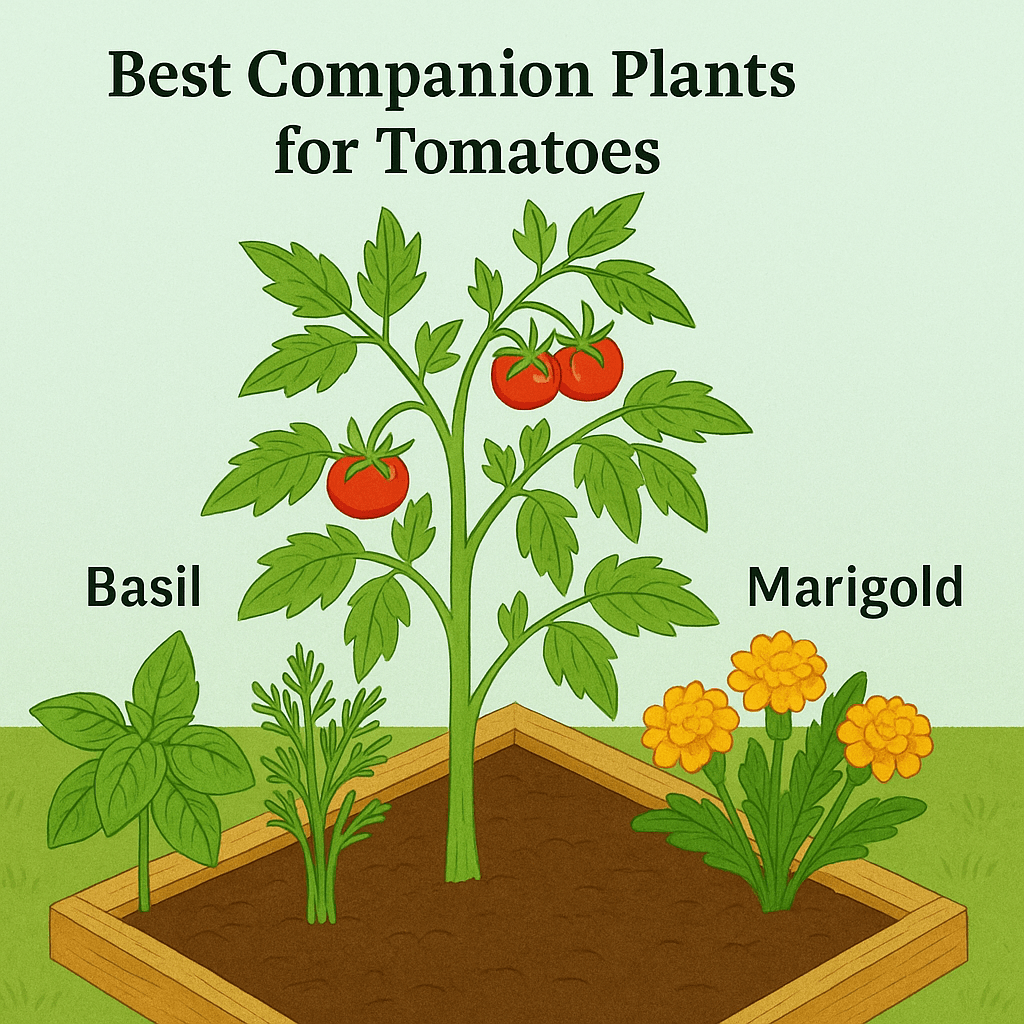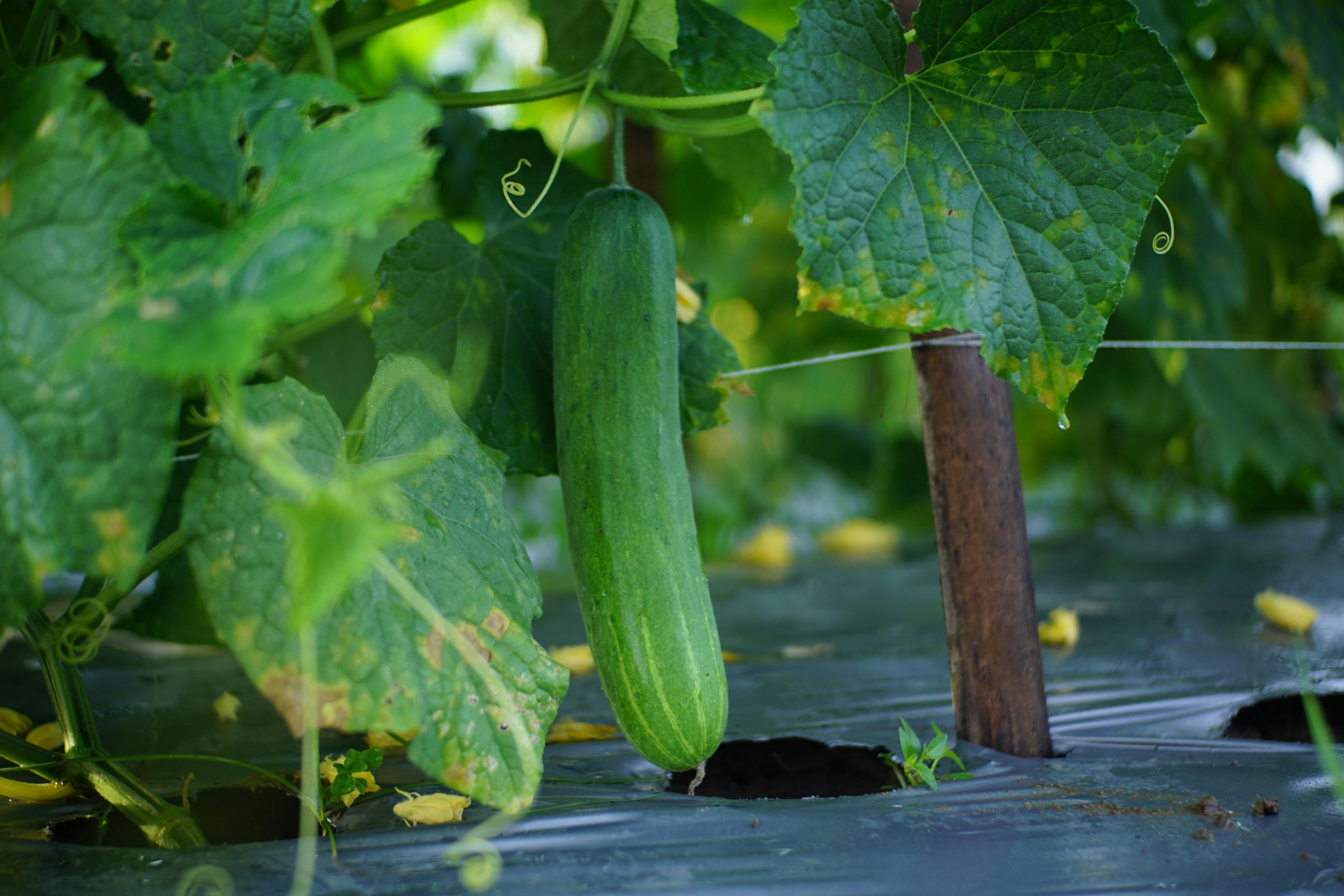Pruning Tomato Plants: A Practical Guide
When I planted my first tomato crop in the backyard, I was mostly concerned about watering, sun exposure, and pest control. Pruning wasn’t even on my radar. But after a few seasons of tangled vines, moldy leaves, and underwhelming harvests, I learned: pruning tomato plants is one of the simplest ways to grow healthier, more productive plants.
If your tomato plants are getting leggy, slow to fruit, or looking like a jungle in July—this guide is for you. Here’s how I prune my tomatoes to boost airflow, reduce disease, and direct energy into fruit, not foliage.
Why Prune Tomato Plants?
- Enhanced Airflow: Reduces the chance of fungal diseases like early blight and powdery mildew.
- Improved Sunlight Penetration: Helps fruit ripen evenly and quickly.
- Increased Fruit Size: The plant spends more energy on fewer, larger fruits.
- Easier Maintenance: Keeps plants tidy and manageable—especially in suburban gardens with limited space.
Indeterminate tomato varieties benefit the most from pruning. These keep growing and fruiting all season. Determinate types, which stay compact and fruit all at once, need much less pruning—just remove dead or diseased leaves.
When to Start Pruning Tomato Plants
Start pruning when your tomato plants are about 12–18 inches tall and have several sets of true leaves. This is when you’ll start noticing small shoots called suckers growing at the junction of the main stem and branches.
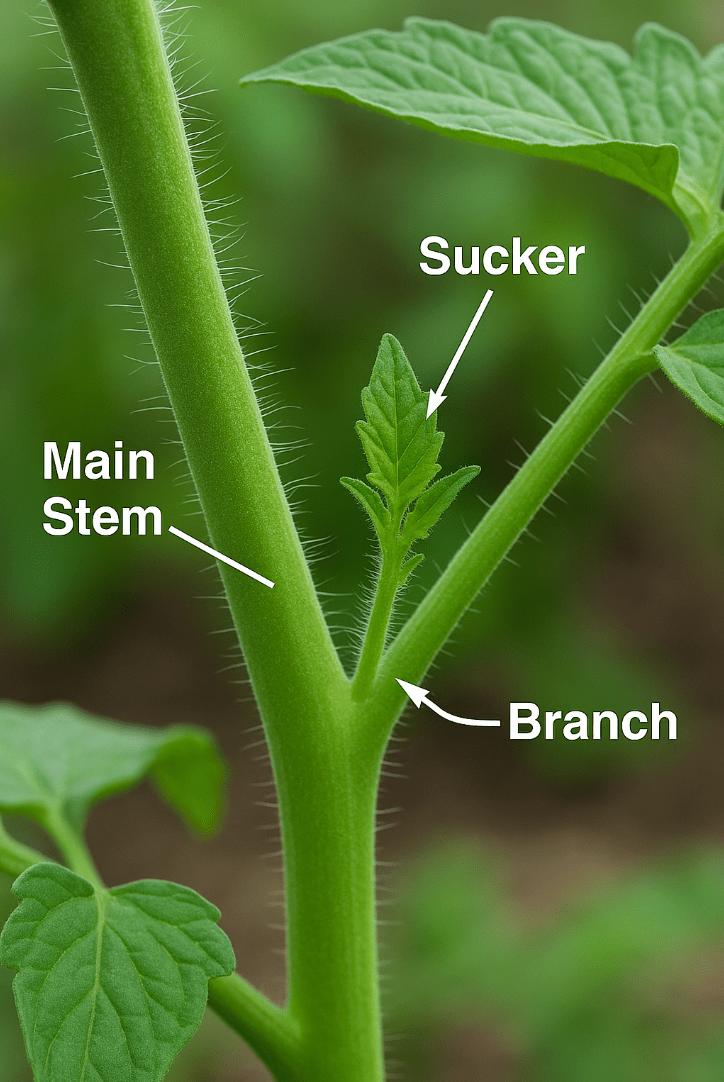
What You’ll Need
- Sharp, clean pruning shears or scissors
- Gardening gloves (optional, but helpful for sticky stems)
- Rubbing alcohol or bleach solution to sanitize tools between plants, Lysol will work too.
Pruning Tomato Plants: Step-by-Step
1. Remove Lower Leaves
Trim off the bottom 6–12 inches of leaves, especially any touching the soil. These are the first to get fungal issues. Wait until the plant is about a foot tall before doing this.
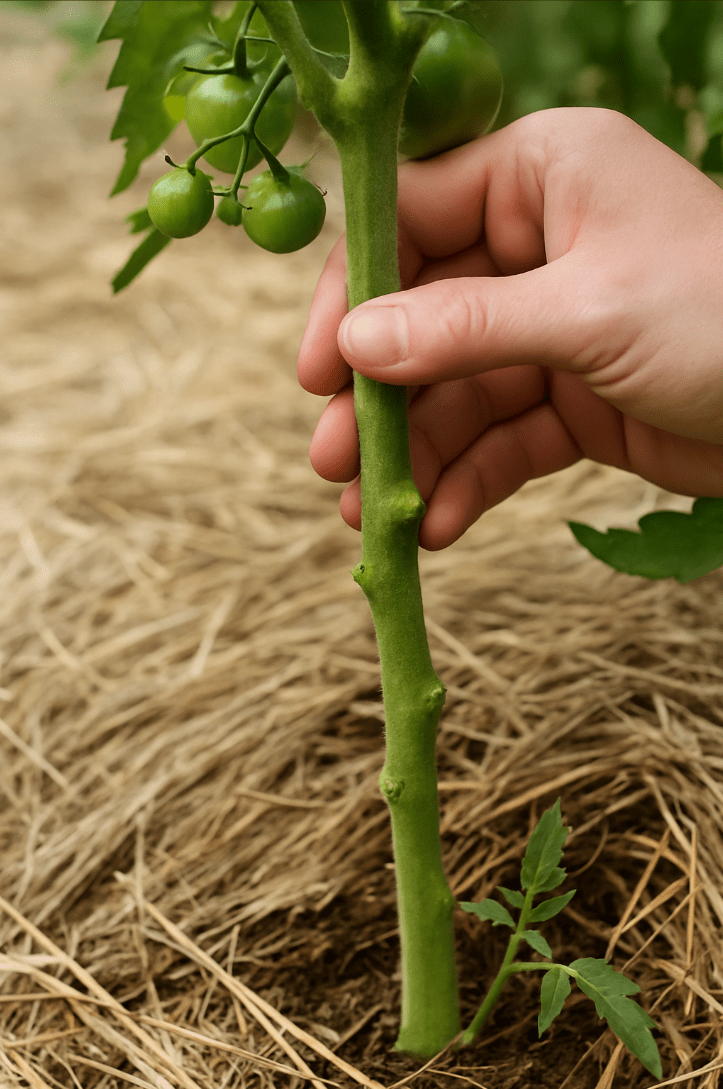
2. Pinch Off Suckers
Pinch off suckers while they’re small (under 2 inches long). For larger suckers, use sanitized shears for a clean cut.
3. Train the Plant
For indeterminate tomatoes, train one or two strong stems and remove others. This keeps the plant manageable and focuses its energy on producing fruit.
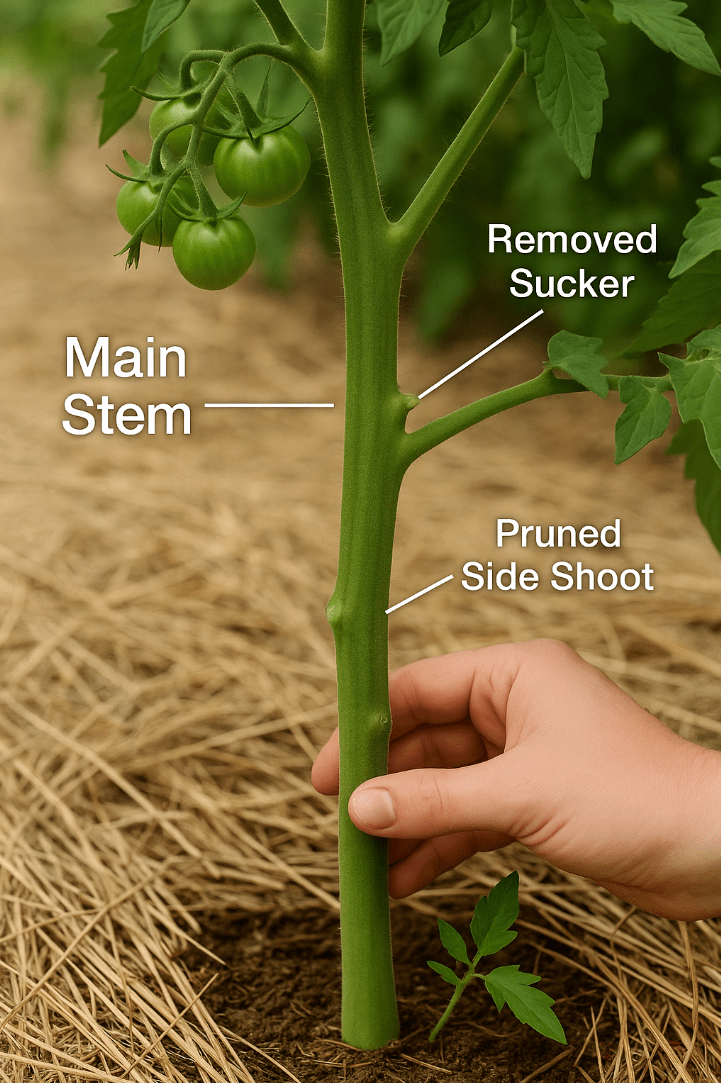
4. Maintain Weekly
Once a week, walk your garden and remove any new suckers or yellowing leaves. It only takes a few minutes and helps avoid disease and overcrowding.
Common Pruning Mistakes
- Over-pruning: Don’t strip too much. The plant still needs leaves to photosynthesize and stay healthy.
- Pruning determinate types: This can reduce yield on compact plants—just remove damaged or diseased foliage.
- Using dirty tools: Always sanitize to avoid spreading disease between plants. This is very important for plants with visible disease.
Final Thoughts
Pruning tomato plants isn’t complicated, and it can transform your harvest. Healthier plants, bigger tomatoes, and easier maintenance—it’s a win all around. Don’t skip this simple but powerful habit in your suburban garden routine.
Want more info? This guide from Bonnie Plants explains tomato pruning in even more depth.
More Tomato Growing Help
Check out these related guides to keep your tomatoes thriving:

